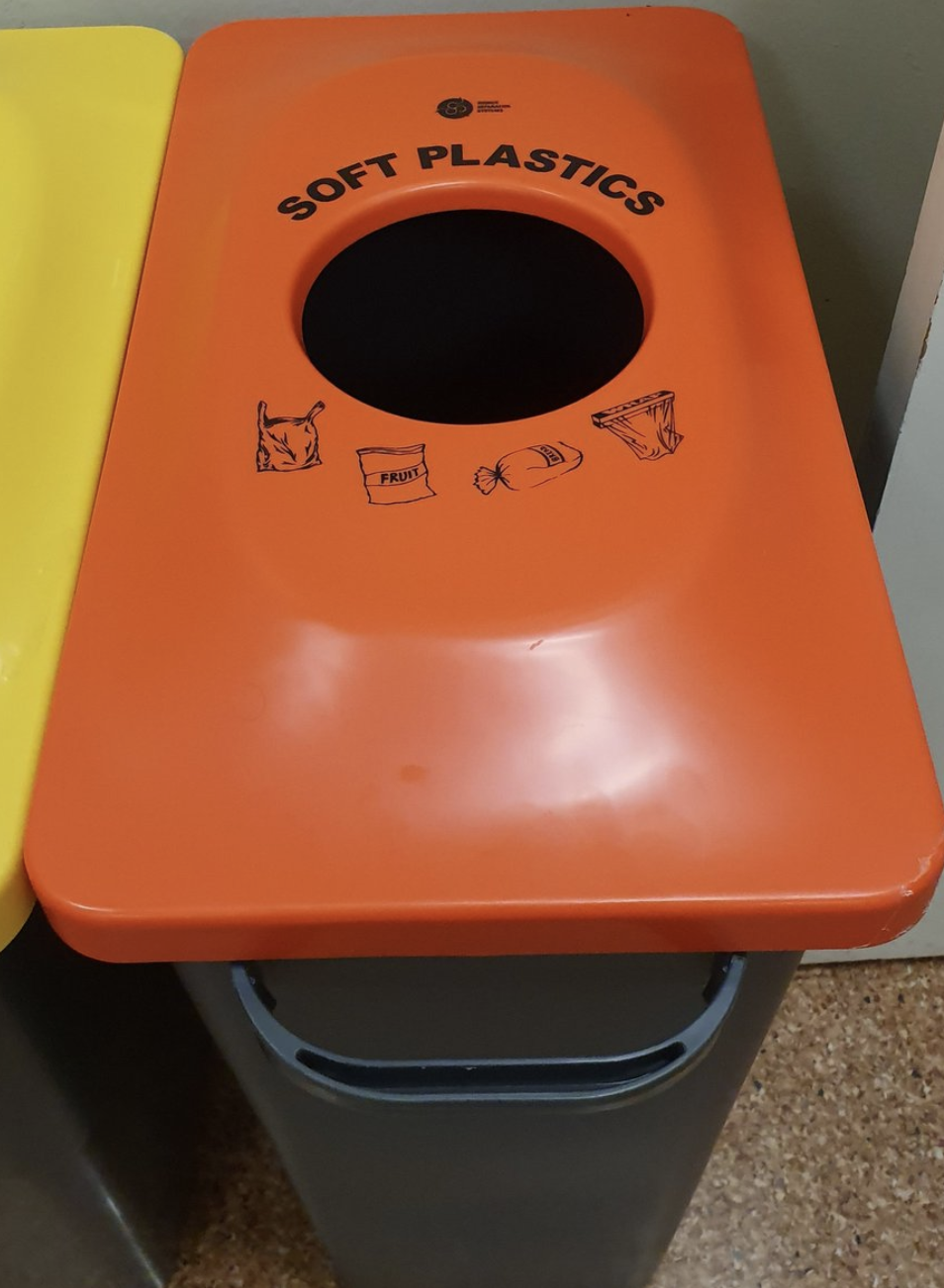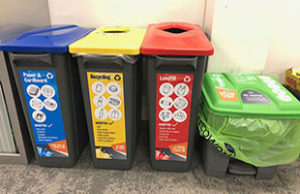In conjunction with Ecoversity, volunteers at the University of Adelaide have launched soft plastic recycling with REDcycle.
The University has moved to open plan recycling, which has seen communal recycling stations become a prominent feature of offices, kitchens and shared spaces. This has removed the need for the majority of individual bins and ensured people think about their own waste.
Staff and students have been assigned to manage soft plastics waste bins installed in the:
- Benham Building, G03 communal kitchen
- MLS Building, 144 breakout space
- Darling Building 209 communal kitchen
Do you know what soft plastic can be recycled by REDcycle?
As technology improves, so do the kinds of plastics which can go to REDcycle for recycling. The current list includes:
Yes
- Biscuit packets (outer wrapper only)
- Bread bags (without the tie)
- Bubble wrap (large sheets cut into A3 size pieces)
- Cat and dog food pouches (as clean and dry as possible)
- Cellophane from bunches of flowers (cut into A3 size pieces)
- Cereal box liners
- Chip and cracker packets (silver lined)
- Chocolate and snack bar wrappers
- Cling film – GLAD brand ONLY
- Confectionery bags
- Dry pet food bags
- Fresh produce bags
- Frozen food bags
- Green bags (Polypropylene Bags)
- Ice cream wrappers
- Large sheets of plastic that furniture comes wrapped in (cut into A3 size pieces)
- Netting produce bags (any metal clips removed)
- Newspaper and magazine wrap
- Pasta bags
- Pet food bags (chaff/horse/chicken) – both the plastic and woven polypropylene types (but not woven nylon). Cut into A3 size pieces and shake free of as much product as possible
- Plastic Australia Post satchels
- Plastic carrier bags from all stores
- Plastic film wrap from grocery items such as nappies and toilet paper
- Plastic sachets
- Potting mix and compost bags – both the plastic and woven polypropylene types (cut into A3 size pieces and free of as much product as possible)
- Rice bags – both plastic and the woven type (if large, cut into A3 size pieces)
- Snap lock bags / zip lock bags
- Squeeze pouches with lid on (e.g. yogurt/baby food)
- Wine/water bladders – clear plastic ones only
Please make sure your plastic is dry and as empty as possible.
No
- Plastic bottles
- Plastic containers
- Any rigid plastic such as meat trays, biscuit trays or strawberry punnets
- Adhesive tape
- Balloons (of any kind)
- Biodegradable/degradable/compostable plastics
- Blister packs, tablets and capsule packaging
- Blow up pool, pool toys or beds – plastic or PVC
- Bread bag tags
- Christmas tinsel and Christmas trees
- Cling wrap/Cling film – with the EXCEPTION OF GLAD brand
- Coffee bags
- Cooler bags
- Disposable food handling gloves of any variety
- Drinking straws
- Film negatives and x-rays
- Fishing line
- Foam or polystyrene of any kind
- Foil / Alfoil of any kind
- Food waste
- Glass
- Laminated materials and overhead transparencies
- Medical waste materials
- Nylon – woven, soft or fishing line
- Paper and cardboard
- Paper post packs
- Plastic/clear vinyl packaging from sheets and doonas etc
- Plastic packaging that has contained meat
- Plastic strapping used for securing boxes and pallets
- Powdered milk packets, made of foil
- PVC
- Rope of any variety
- Rubber, rubber gloves, latex
- Tarpaulins
- Tin cans
- VHS Tape
- Vinyl – any type of vinyl packaging
- Wet plastic materials as mould is a problem for us
- Wine/water bladders – foil based
- Wrapping paper and cardboard, ribbons or bows
Where is soft plastic accepted?
For household waste, most Coles and Woolworths stores accept soft plastic (normally at the front of the store). Find your local drop off point at “Where to recycle“.
Whilst recycling soft plastics is a great step in managing our current waste, the next and more vital steps are to avoid soft plastics altogether. Reduce, reuse, recycle.




